Tales from Two Communities
July has been a month of connection and creativity, both with my family and with fellow liminal artists at a residency in the Adirondack Mountains.
Since arriving in the United States a week and a half ago, I have been immersed in two very different yet strangely kindred communities.
My parents are currently living in Tatnuck Park, which offers memory care for my mother, who suffers from dementia, and assisted living for my father, confined to a wheelchair after a catastrophic virus attacked his central nervous system last year. For more than three years, I have been unable to visit or help care for either of my parents, due to cancer treatments and surgery and the absence of an immune system. The entire burden of organizing their care has fallen to my sister, who found them this residence. I have been helpless and useless, seeing my parents suffer from a distance.
Thus it felt unreal and somewhat miraculous to knock on the door of my dad’s apartment last week and find him sitting at his desk, looking much like the father I remembered. For a week, we joined my parents for lunch, dinner, and the time in between. We took strolls around the grounds,
When my mother ended up spending a day in a hospital emergency room, I was for once in a position to help her—although it was Theadora who was most useful. She read to my mother for at least six of the ten hours we were there. The only book she had with her was Donna Tartt’s The Secret History, not exactly a soothing read, but my mom didn’t seem to care. She was calmed by the sound of Theo’s voice. Any time she became agitated, Theo reassured her that she was in the right place doing the right thing.
Everyone we met at Tatnuck was welcoming, kind, and extraordinarily generous. Not only the staff, but the other residents. The kitchen manager sneaked me a bag of gluten-free bagels to take home. The activity coordinator included us in the weekly poetry group. People loaned us chess sets and books of their art. Everyone was curious about us (and enchanted by Tim’s accent), stopping by our table or in the hallway to chat with us. They told me how much they loved my dad, and how thrilled they were that he is teaching them chess. They told me how sweet my mother is.
They took special interest in Theadora, who took a special interest in them. She also attended poetry group (with my dad and me), reading poems aloud and noting which poems she liked. One resident invited her to her room to show her photos of her career performing with an acrobatic troupe and of her gymnastics academy. Another resident—the liveliest and fittest 97-year-old I have ever seen and my new role model—gave Theo her phone number and asked her to let her know how things go at summer theatre camp. Theo found it heartening to hear stories of long lives well lived, of decades-long marriages, and rewarding careers. I think Theo would very happily settle into a place like Tatnuck just so that she could continue to enjoy the stories (and the blueberry pancakes).
It made me think that this was an ideal place for a writer to be in residence, helping the residents record the stories of their lives, for their families or the community. Everyone was so eager to show us that they had not always been old and infirm. There had been glorious decades of work, children, and travel. They were whole people who had been loved and valued. They wanted to remind us, lest we be foolish enough to forget.
My dad had invited me to give a talk to the residents during my time there, so one Thursday afternoon, we gathered in the activity room in a large circle. Every chair was filled, and a few more residents hovered in the doorway. I was pleased that so many people were interested. My dad introduced me, talking about all the advice he has given me over the years, and all the ways I never took that advice. So when I stood up to speak, I began, “Essentially I have made a career out of disappointing my father.” My mother was there too, seated next to him, though it was impossible to tell how much she understood. I talked about my convoluted career path, how I ended up in Yemen and wrote my first book, how I found the inspiration for the following novels. I ended by reading the Overture of Exile Music. Everyone asked me thoughtful questions, and many lingered in the room afterwards to chat. A tiny woman in a bright flowered headband and matching shirt, Barbara, scooted across the room to sit beside me. “I didn’t want to say this in front of the group,” she began. “But you just made me remember that when I was seven, I dreamed I had written a novel.” She was so happy to have remembered it. I suggested she write it now, and she said, “I’m 94!” Well, I replied, nothing like a deadline to keep you going!
Later, the group leader told me that Barbara was a new arrival and only just beginning to emerge from her shell. She had never seen her so engaged. “She has never shared anything like that,” she said. “That moment alone made my day.” The power of storytelling!
Speaking of storytelling, I am compelled to include a parental moment of joy. The morning before my talk, Theadora found out that a play she wrote will be produced at her summer theatre camp! She will get to work with a dramaturg and even direct it if she wants. We’re so thrilled for her.
Now, I find myself in one of six tiny cabins perched at the top of a hill, as the mist rises from the surrounding Adirondack mountains. This is the ever-evolving artists’ residency of Craigardan. The campus also includes a working farm, a farm store, and acres and acres of trails. A passel of pigs romp through their forest enclosure and squirm on their backs in the mud. A lone ram stands at the bottom of our hill. We are not to interact with this new member of the community, but we are permitted to say, “Hey Larry,” as we pass him. There are chickens and sheep and a farm store cat named Alice, who brought me a dead mouse today as I was working at the farm store.
But best of all are my fellow residents. I don’t know what magic brought us all together, but it’s powerful. In such a small group, there is always the risk of someone not quite jelling with the others, the risk of petty conflict. Yet the five artists here with me are among the most open-hearted, curious, warm, brilliant, and generous people I have met. Any time someone mentions a need, like she forgot a flashlight or only has one shirt because her daughter stole her other one (okay, that was me), someone offers a solution. We make each other coffee and tea. We pair up to find creative things to do with the refrigerator stuffed full of farm produce. We give each other rides. We talk about our work and our pets and our partners. We are even able to sit silently together in the early mornings, each of us immersed in preparations for our workday. It feels like we have been together for months rather than days.
The magician-in-chief here is Michele Drozd, co-founder and executive director of Craigardan and an accomplished ceramicist. Ever since I met her many years ago, she has been asking artists, “What do you need?” She is always striving to find new ways to create a fertile environment for artists of all kinds. People have worked here in more than 25 disciplines. Michele is equally passionate about her commitment to social justice and to the land here in this six-million-acre national park of high peaks and deep forests. Essentially, I wish Michele were running the country. Read more about the people who make the magic here:
https://www.craigardan.org/people
Craigardan is committed not just to its own internal community, but to all the communities in which it exists. It works on social justice projects, food justice, it honors the original inhabitants of this land. https://www.craigardan.org/foodjustice
From the moment I picked up two fellow residents at the train station in Albany, I have felt the rising euphoria of finding community. This is what I have been missing so much in France: living in a group of fellow artists and writers. Talking about our work with each other every day. Celebrating our daily progress over dinner each evening. The creative sparks generated by our conversations. The deep empathy. The shared language.
Yet this residency is different for me from all those that have come before, due to the dark undercurrent of fear I cannot quite shake. When my body doesn’t feel comfortable, when something in it isn’t working, it is hard to fend off the panic. Some nights when I want to be able to generate light at the dinner table, I instead feel the undertow of sorrow and anxiety.
At these moments, it helps to listen. To hear the stories of the others, to soak up their experiences and perspectives and kindness. They distract me from self-pity and terror. I’m quieter than I have been at past residencies (which is not to say I am quiet), and that may be a good thing.
Today, I am alone in the farm store. It’s a slow day here, perhaps due to the sticky heat. The presence of Internet here (non-existent in our cabins) has tempted me to look at social media, where I couldn’t help seeing someone on my ovarian cancer support page on Facebook announce the death of her mother, two and a half years after being diagnosed with my kind of ovarian cancer. It struck at me, tearing a hole in my joy in creation, forcing me to consider that I may not be alive by the time this book comes out. I won’t dwell on it, I won’t let myself dwell on it, but it is not an unrealistic fear. And that is why it makes breathing so hard this afternoon.
I miss my fellow residents, off climbing a mountain. I can’t wait to see them tonight and hear about their adventures and drive north tonight to see a local folk rock group with them. They are so full of the joy of discovery, of exploration, of absorption in their creative work—they radiate it. I want to bask in their light for as long as I can.


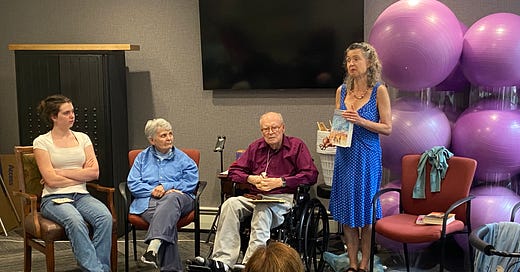



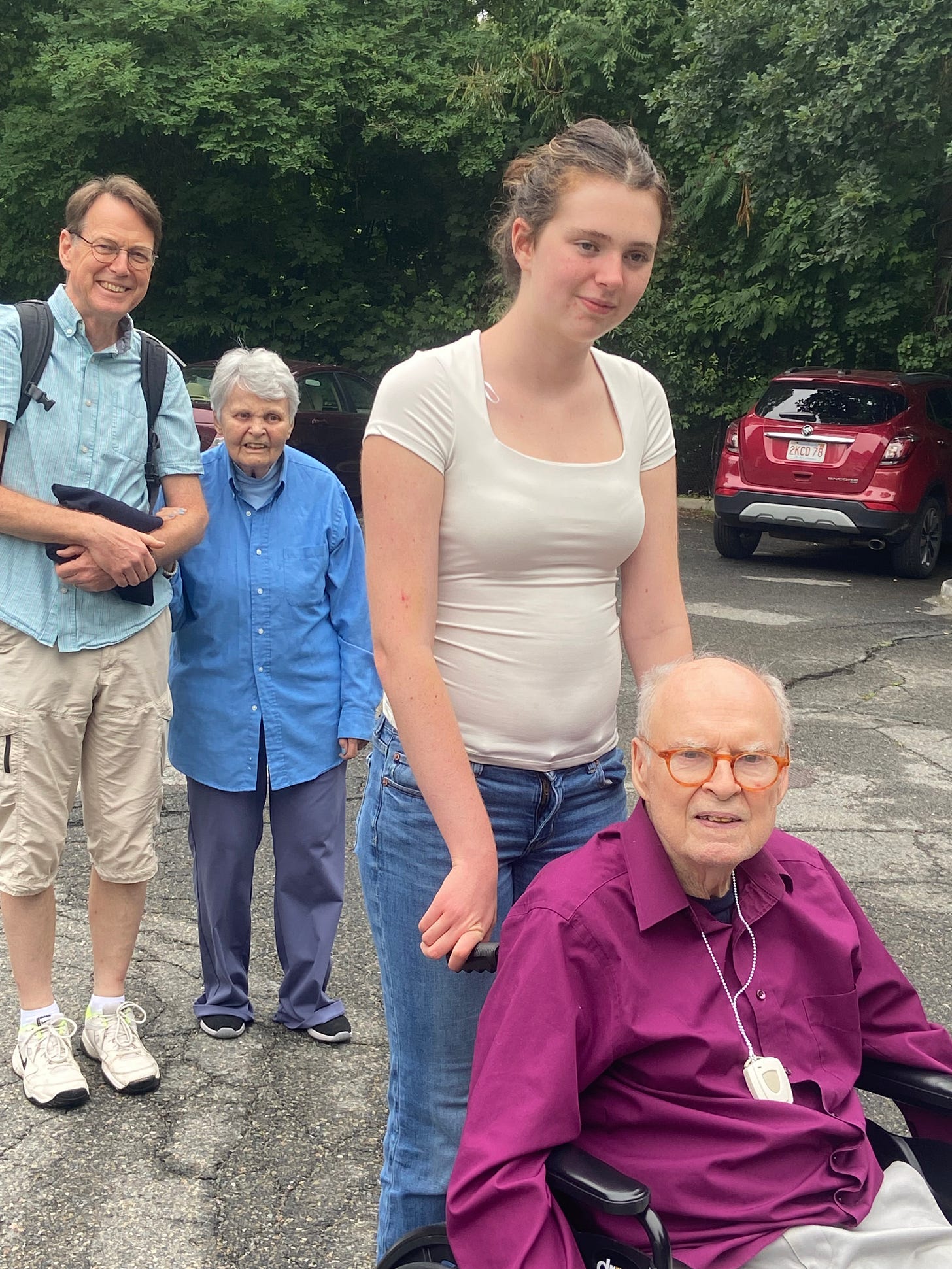
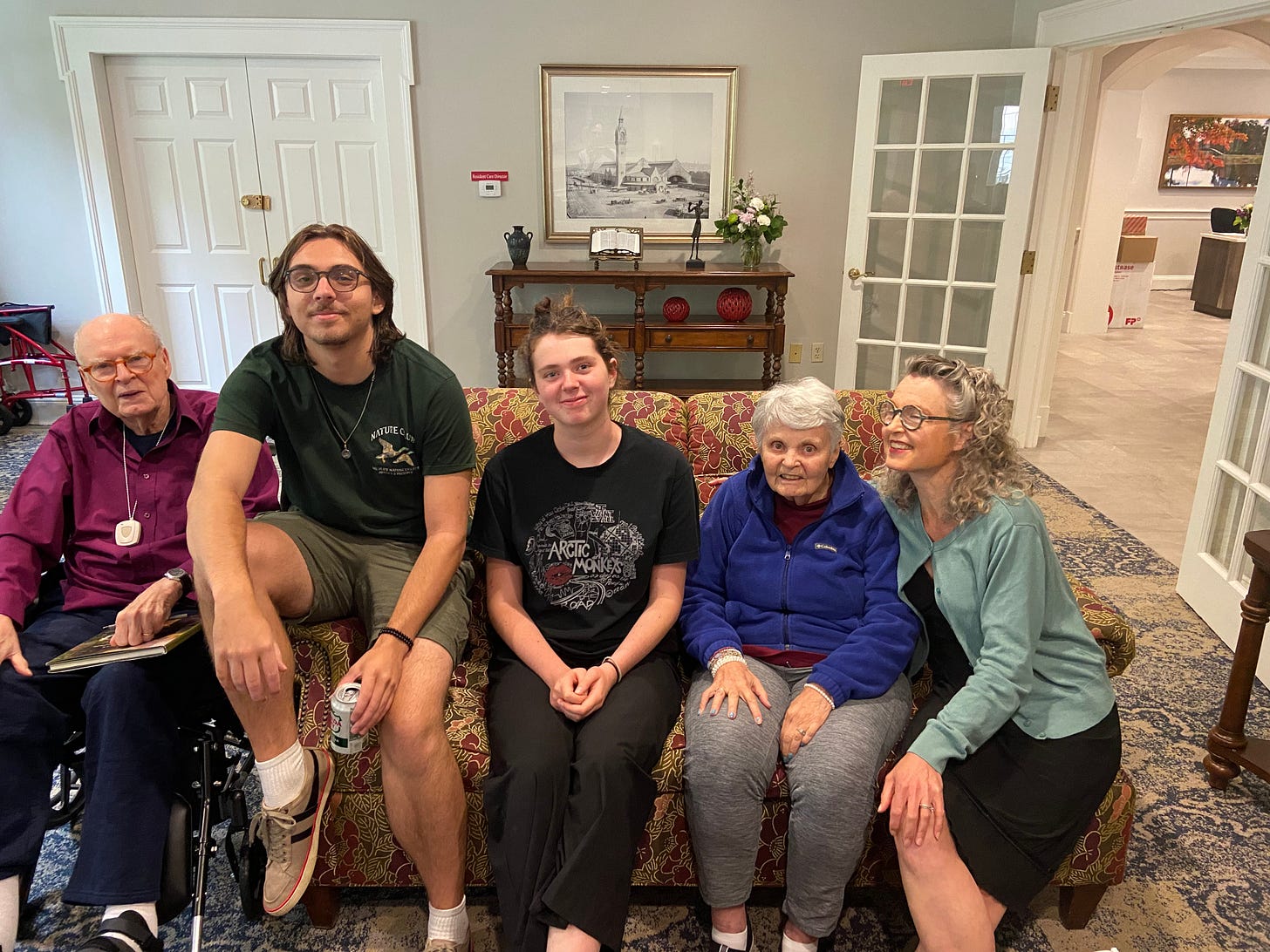
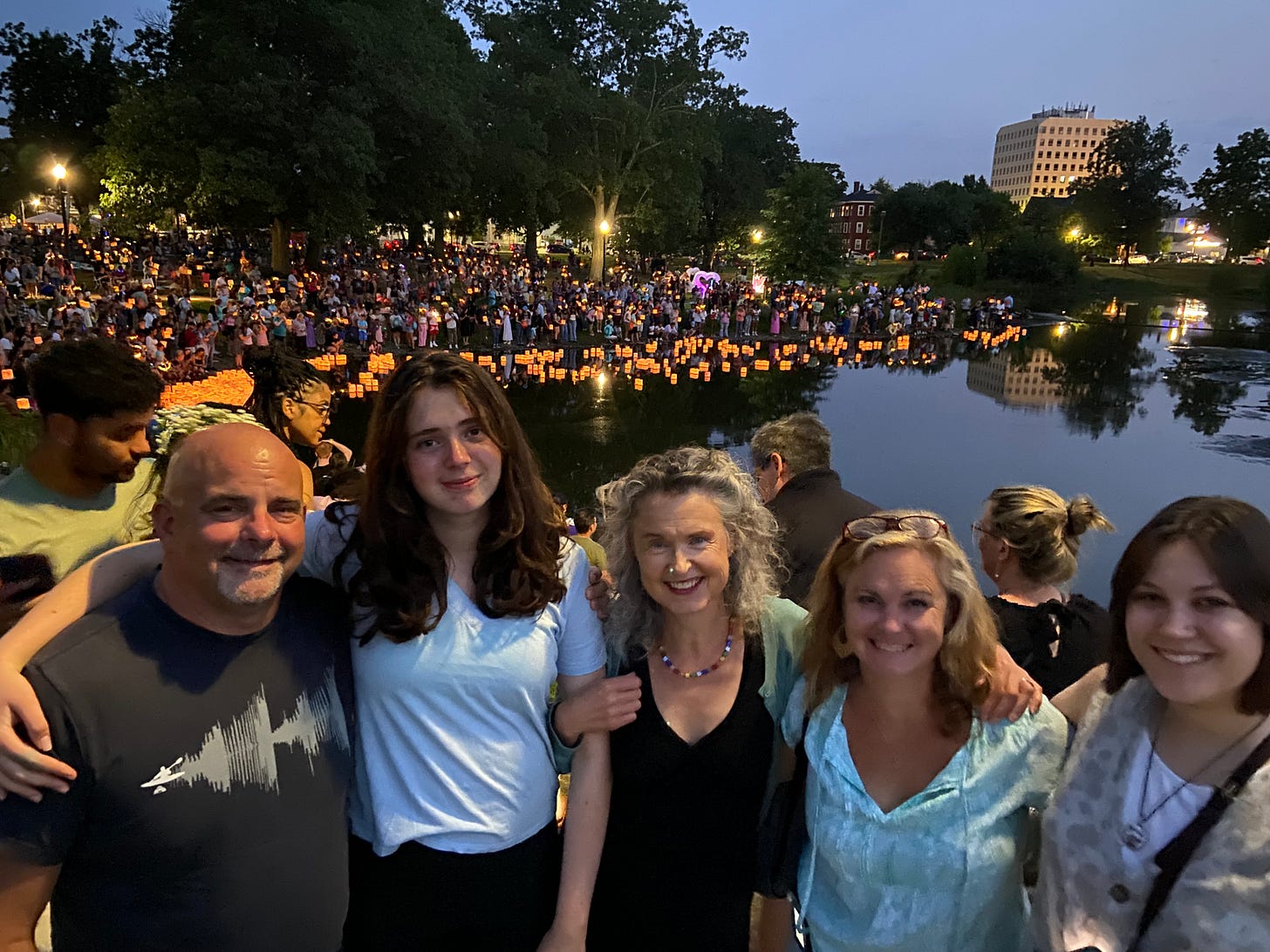
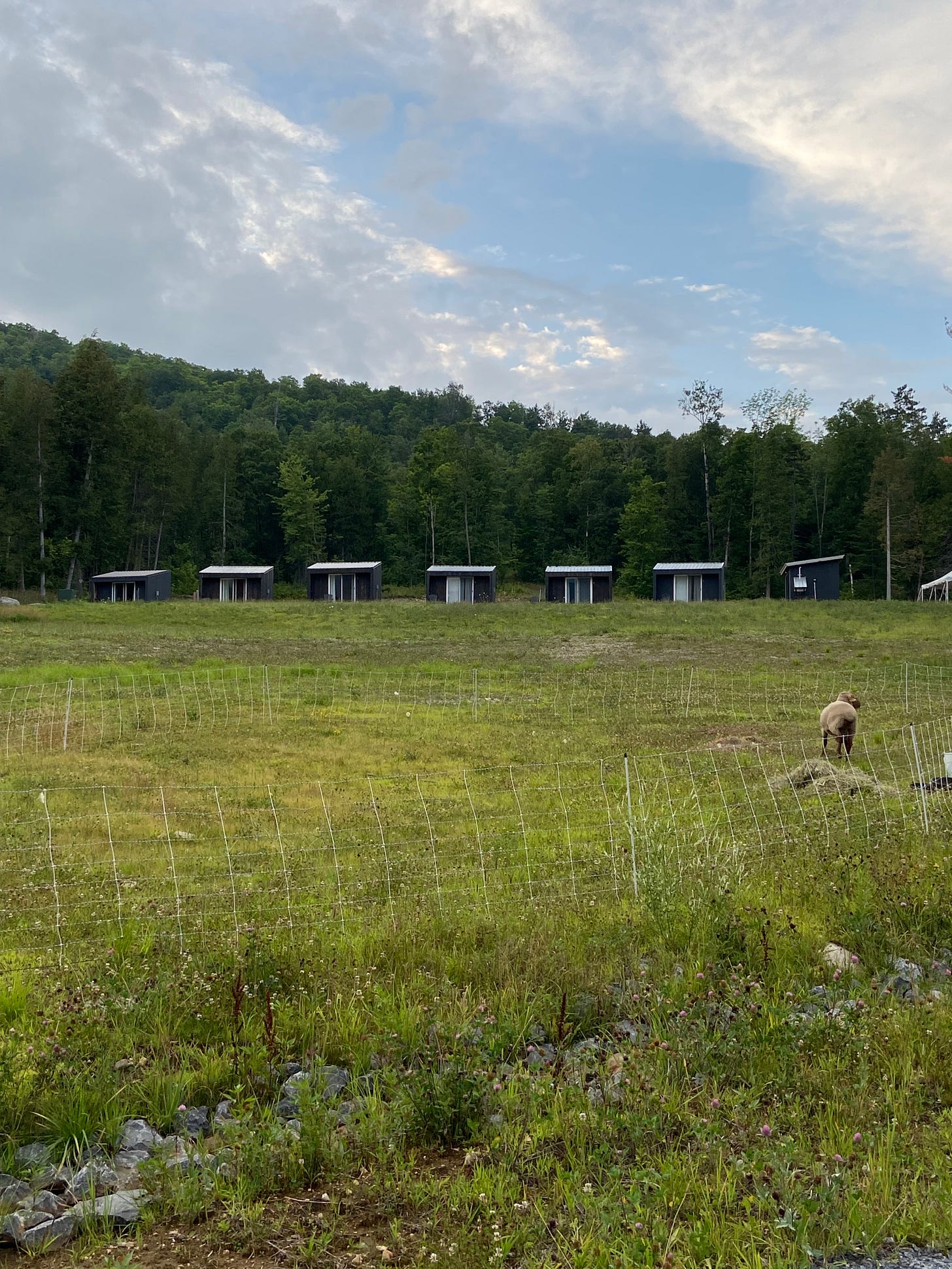
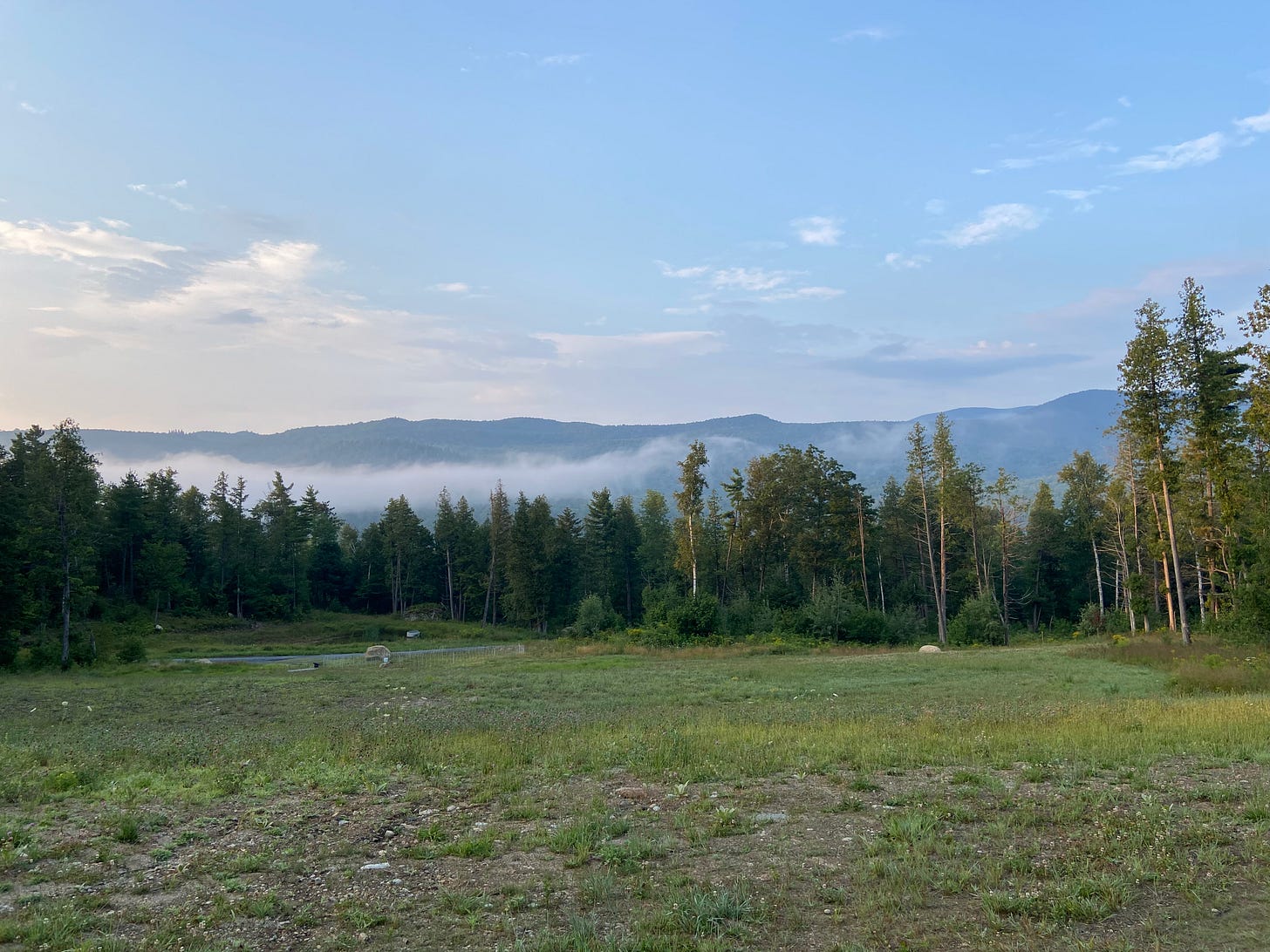
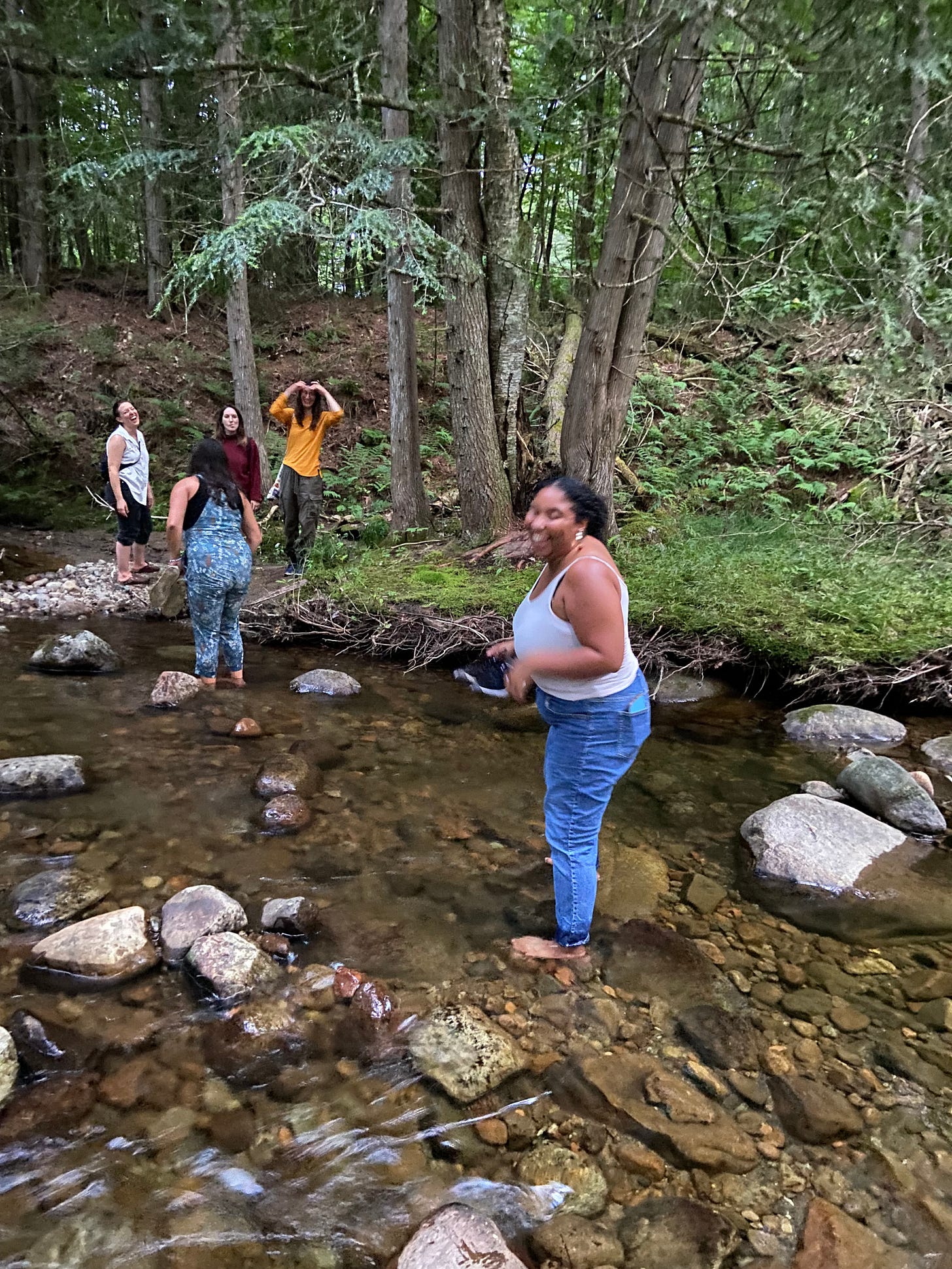


Profoundly beautiful essay, Jennifer.
Love & best wishes from a fan in Berkeley. Looking forward to your next book!
Glad you got back!